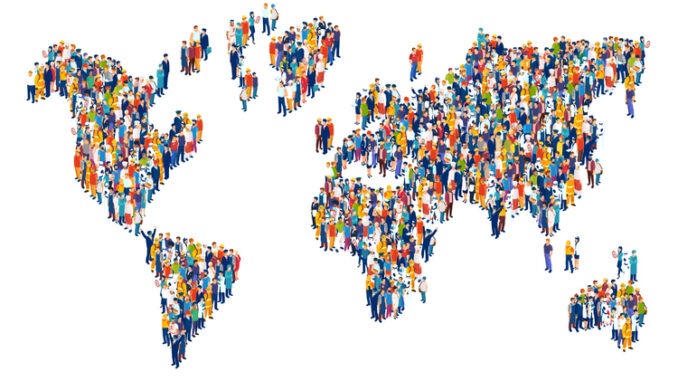In today’s ever-connected world, schools have a unique opportunity to nurture global citizenship, from supporting local communities to embracing fair trade and ethical procurement. In this article, Helen discusses how schools can nurture a global mindset and embrace care for communities across the world
Ever experienced an eye-opening moment when you realised life continues beyond your immediate concerns? Consider the scenario of stepping out of your usual routine, like attending an appointment during work hours, only to discover numerous others engaged in activities beyond their work. Despite the seemingly common understanding of shared experiences, it’s intriguing how our individual paths diverge, challenging the notion of everyone being in the ‘same boat’.
During the pandemic British writer Damian Barr wrote, ‘We are not all in the same boat. We are all in the same storm. Some are on super-yachts. Some have just the one oar.’ The COVID vaccine roll out, worldwide, is testament to that. We in the UK, with nearly 90% of people aged 12 years and over having received two doses of a COVID-19 vaccine, are on a super-yacht, whereas some countries like Nigeria and Ethiopia, where only eight per cent of the population is vaccinated, don’t even have one oar! I feel powerless to help those countries and yet, as a global citizen, I do have a responsibility.
Global citizenship
‘Global citizenship’ is the concept that everyone is a member of a worldwide community, although your life might not always look like the lives of people in other countries. Global citizenship includes civic responsibilities, cultural awareness, the environment and the global economy. All people are connected by our shared experience of living on earth – some people are paying more for it than others, though.
One such experience is having a coke. More than 200 countries sell Coca-Cola™ and, where it isn’t manufactured, it is often imported. Originally, in Samoa, an island in the Pacific Ocean, Coca-Cola™ sold their fizzy drinks in glass bottles with an incentive scheme to return them. In February 2021, Coca-Cola™ switched to plastic bottles as, economically, this was better for them. However, there is no facility to recycle plastic on the island so, in order to avoid being overrun with single use plastic, volunteers collect, clean and sort the plastic bottles and get them compacted and sent off the island for recycling. Their civic responsibility has compensated for Coca-Cola™ walking away from the impact of their actions.
Coca-Cola™ sells over 100bn single use plastic bottles every year; they are the world’s worst plastic polluter for the third year running according to The Brand Audit Report. The soft drinks industry produces 470bn plastic bottles annually. How does that make you feel as a global citizen?
In terms of the Eco School framework, global citizenship means taking an active role in your community and striving to make the planet more peaceful, sustainable and fair. So, what does this mean for your school?
Ideas for action
- Your school could donate to its local food bank.
- Consider which charities your school raises funds and awareness for; does this include a global or environmental charity?
- Reflection time in assemblies – sharing how students learn in other countries, or how their everyday lives are different, can help students understand their own privilege.
- Purchase fair trade products for the staff room or school kitchen and/or sell them at PTFA events. Maybe your school would be interested in becoming a Fairtrade school? Go to https://schools.fairtrade.org.uk/fairtrade-schools-awards/
- The Global Education Collective as part of their EDI app includes Global Citizenship. They also provide a lot of supporting resources.
- Create volunteering opportunities for students.
- Review your procurement – is it ethical? Are your suppliers ethical? Could you shop locally?
One of the recommendations for being a better global citizen is to increase your awareness of other countries and cultures by travelling – which, as we all know, can have a bit of a negative impact on your carbon footprint. I know when my eldest spent 10 days volunteering in Morocco when he was in Y10, he returned with a far greater appreciation of his life, and an awareness of how different other people live and work. He was no longer so black and white about things; he thought and reflected more.
However, the carbon footprint of that trip wasn’t offset – oh the complexities of becoming a global citizen!
This article was written by Helen Burge.
You can read the originally published version of this article in the Education Executive magazine.



Be the first to comment